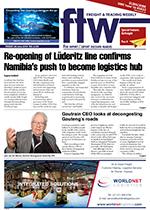The United States wants to increase trade with South Africa but for this to happen the South African government needs to come to the negotiation table. This was the message from US trade officials to the Exporters’ Club Western Cape (ECWC) in Cape Town last week, stating that the US was not only willing but also ready to start negotiations at any time. “South Africa has been very clear they don’t want a free trade agreement with the US,” said Juan Manuel Cammarano, trade and investment officer at the US Embassy in Pretoria. “We cannot be any more forward leaning in our wanting to work with SA. We don’t need to come to the table. We have shown our interest, readiness and willingness.” South Africa and the US have been at loggerheads over poultry imports for several years, a situation that was exacerbated last year when the US imposed a 10% ad valorem tariff on all aluminium imports, and 25% on steel products. Whilst South Africa did receive some exemption from this, it now has to decide whether it will impose a tariff on US poultry imports, a move that is not expected to go down well with the US should it opt for that route. South Africa has also been vocal in its disagreement with the US stance on the World Trade Organisation (WTO). The US wants to see a tightening of subsidies and greater transparency on tariffs – less special and differential treatment between countries. “We are of the opinion that the WTO must pursue a fresh start to address some key problems,” said Cammarano. “The dispute settlement mechanism also needs to be reformed.” He said claims that the US was not an open market were incorrect as it remained open, and growing trade was a priority. He said, however, that a paradigm shift had taken place in the US with the focus now on improving implementation of trade agreements along with better enforcement. “US trade policy is based on the principles of free, fair and reciprocal,” said Cammarano. “The US remains committed to expanding trade and commercial ties to create jobs and build wealth for Americans and Africans alike. We want to work with reformorientated governments to help establish conditions that can transform them into trading partners, improve their business environments and support economic integration among African states.”

